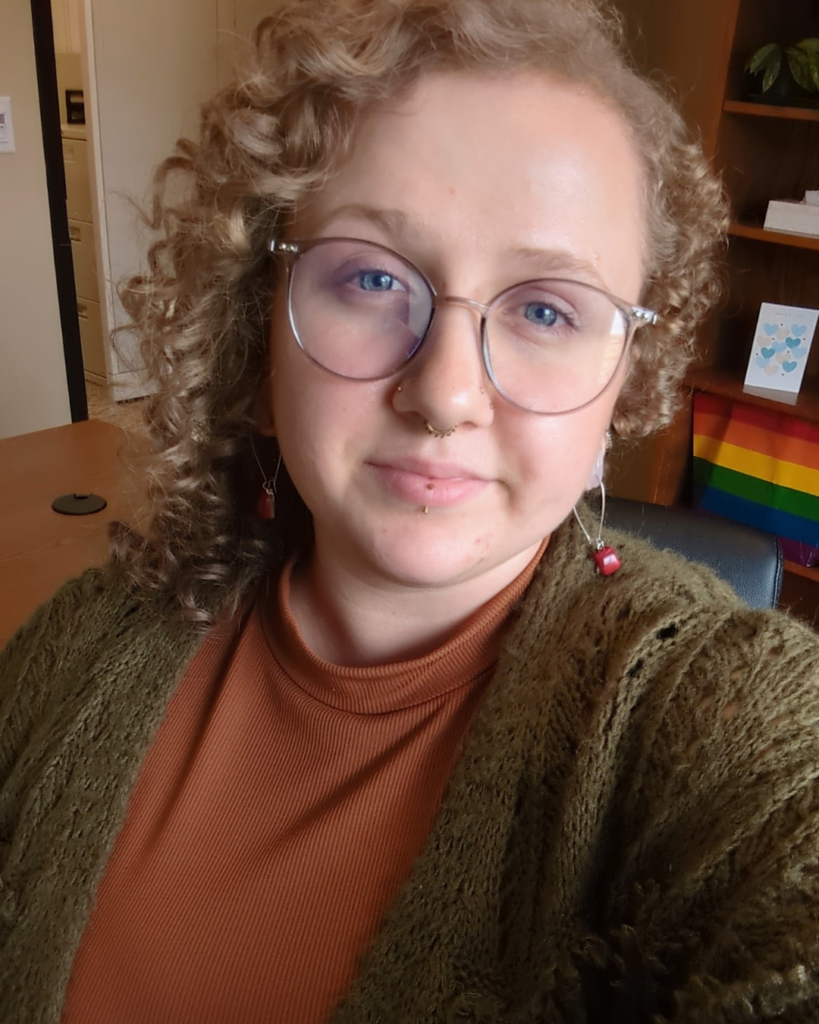One month before Meg Prekeryte (B.A., ’23) graduated from CSU with a degree in English and minor in science communication, she was offered her dream job as a grant writer at a nonprofit whose mission she firmly believes in. By summer 2023, she had moved to the gorgeous Yakima Valley to begin her career.
“It’s such an incredibly diverse and inclusive community,” Prekeryte said.
“The population of Yakima is far smaller than any city I lived in up until this point, and everyone has been so accepting of me joining their community. Yakima is a notable agricultural region, so there is always fresh produce, farmers markets, wineries, and breweries to enjoy.”
With a great location as her backdrop, Prekeryte has embraced the job and the real-world impact her work has on those in the community.
From a non-traditional career path (starting out as a biology major before switching multiple times) to applying writing and analytical skills from her English degree to the professional space, read more about Prekeryte’s career below.

What do you do for work? Walk us through a typical day—what responsibilities and tasks do you handle?
My position is as a Planning & Development Associate for Yakima Valley Farm Workers Clinic (YVFWC), a Federally Qualified Health Center (FQHC). FQHCs are nonprofits that provide medically underserved areas and populations low-cost healthcare services, and YVFWC has multiple clinics and programs across Washington and Oregon.
My job is primarily focused on grant writing and data collection/analysis. The work I do consists of preparing funding applications, researching and writing reports to sustain grant funding, and inter-organization communication regarding the status and progress of grants and awards.
What do you enjoy most about your job? What challenges come up?
The thing I most enjoy about my job is knowing that the work I do is helping ensure every person in my community has the opportunity to receive healthcare. Being able to go into work every day and act as an advocate for people that need it the most is so rewarding. I would say the biggest challenge that has arisen in these first few months of this new job is trying to learn the way FQHCs function and everything that is involved. From regulations, compliance, how we are affected by federal government budgeting, etc. I’ve learned that the world of FQHCs is endlessly complicated, and it is still very much a work-in-progress for me.
How does your English degree play a role in your current career?
My degree, specifically with my concentration in writing, rhetoric, and literacy, is what allowed me to pursue my goal of grant writing. An English degree can be applied to SO many different fields of work; it just took me a few years, and a good advisor (hi, Joanna Doxey!) who pointed me in the right direction, to figure out what exactly I wanted to focus on.
What story about your career would you like to share with current CSU students?
The most important thing I can get across is how a non-traditional path through college is absolutely okay—it actually allowed me to pursue something I am so passionate about!
If I had stuck through my four years as a biology student, I would have never discovered the world of job opportunities that open up to you in the analytical and technical writing space. Instead, I switched my major three times, took a gap year, and ended up in a far better place than I could have imagined.
Take time to explore different paths that may interest you, speak to professors and advisors about the things you enjoy, and you may discover a career path you didn’t even think to pursue before.
What advice would you offer students eager to break into your industry?
Going into grant writing work, the number one thing I can recommend is getting your foot in the door with some kind of grant writing experience. It does not necessarily have to be a paid job, as many nonprofits need volunteer grant-writers to help out.
Having at least a little bit of experience before trying to apply for jobs will put you in a much better position. Also, I want to stress the importance of communicating with professors. I waited far too long in my college career to cultivate connections with professors in the department, and I can only imagine I would have secured even more experience and invaluable knowledge to set me up for career success had I started reaching out sooner.
Share your story
Calling all CLA alumni! After graduating from CSU, you took your liberal arts education and made a meaningful life. We want to share your story with current and future students to inspire the next generation of College of Liberal Arts Rams.
Tell us how your degree has affected your life and career.